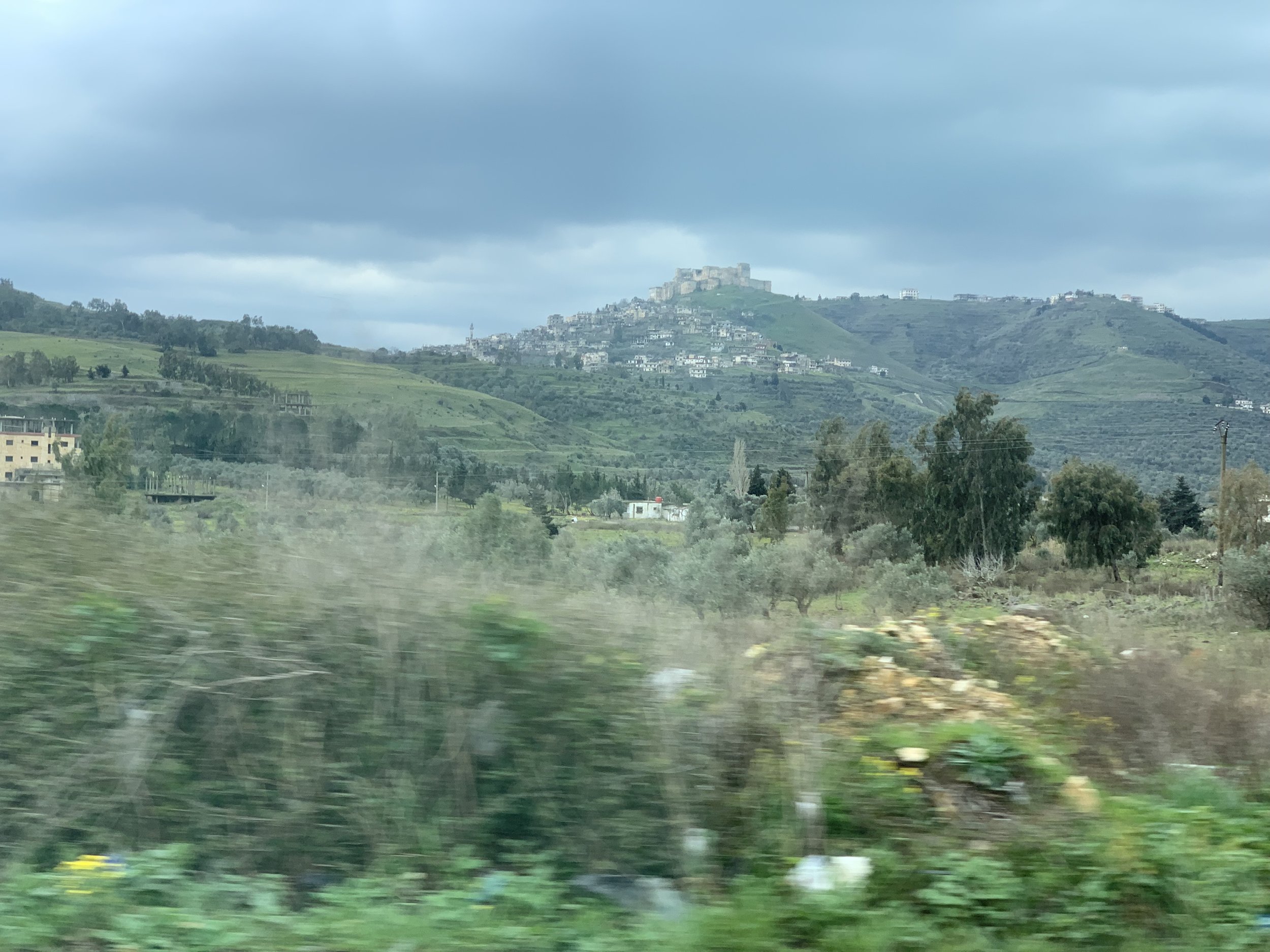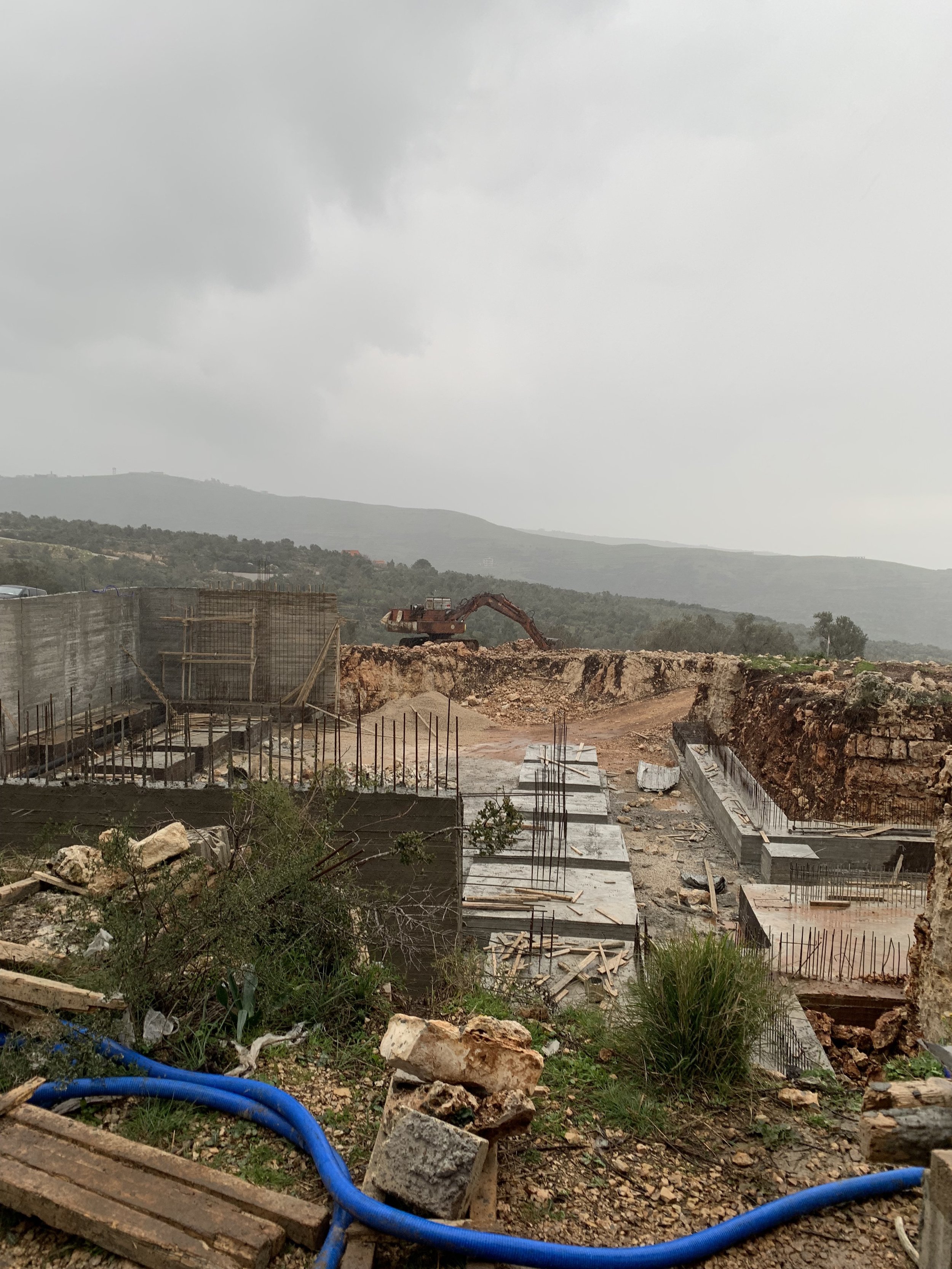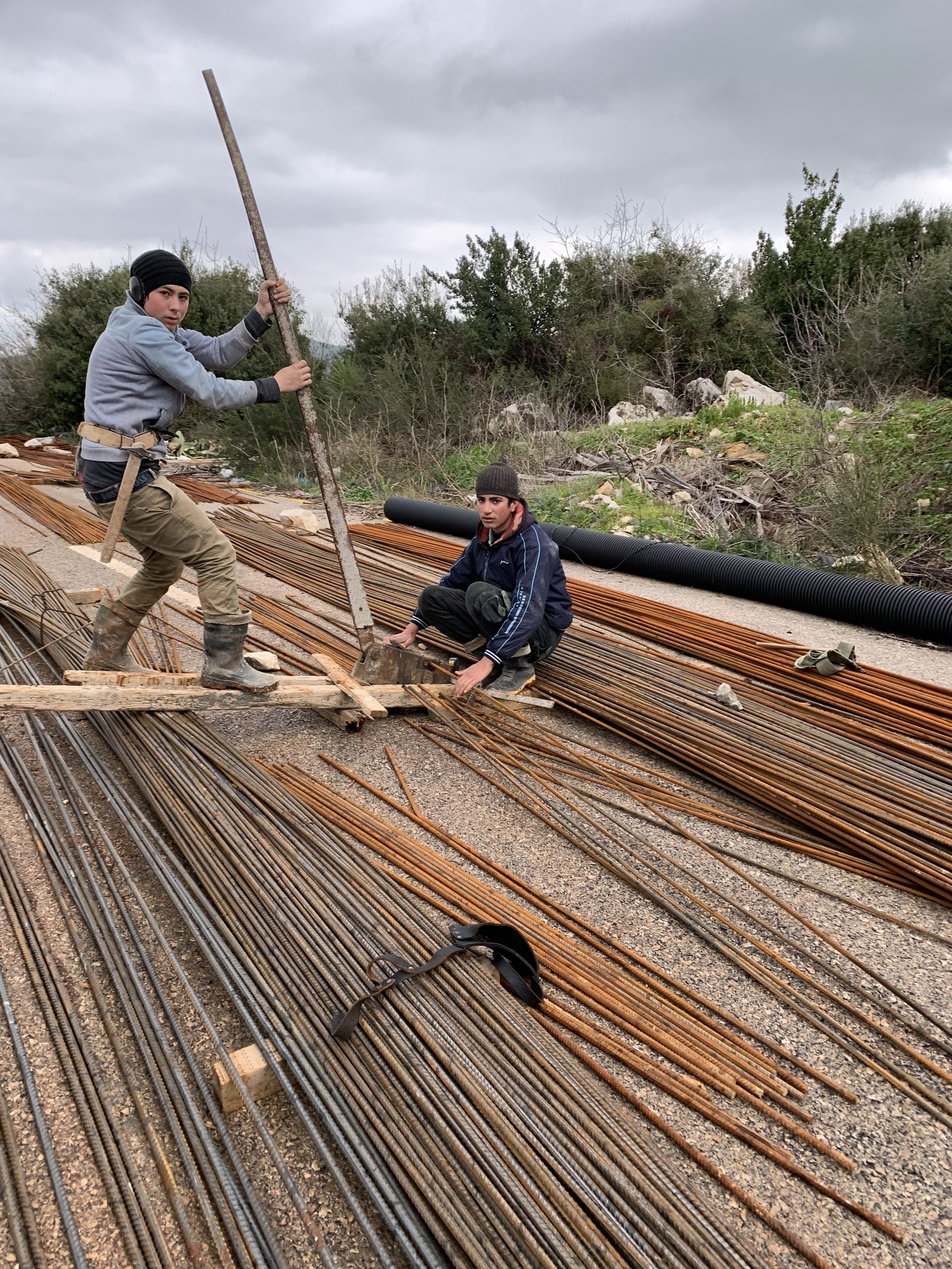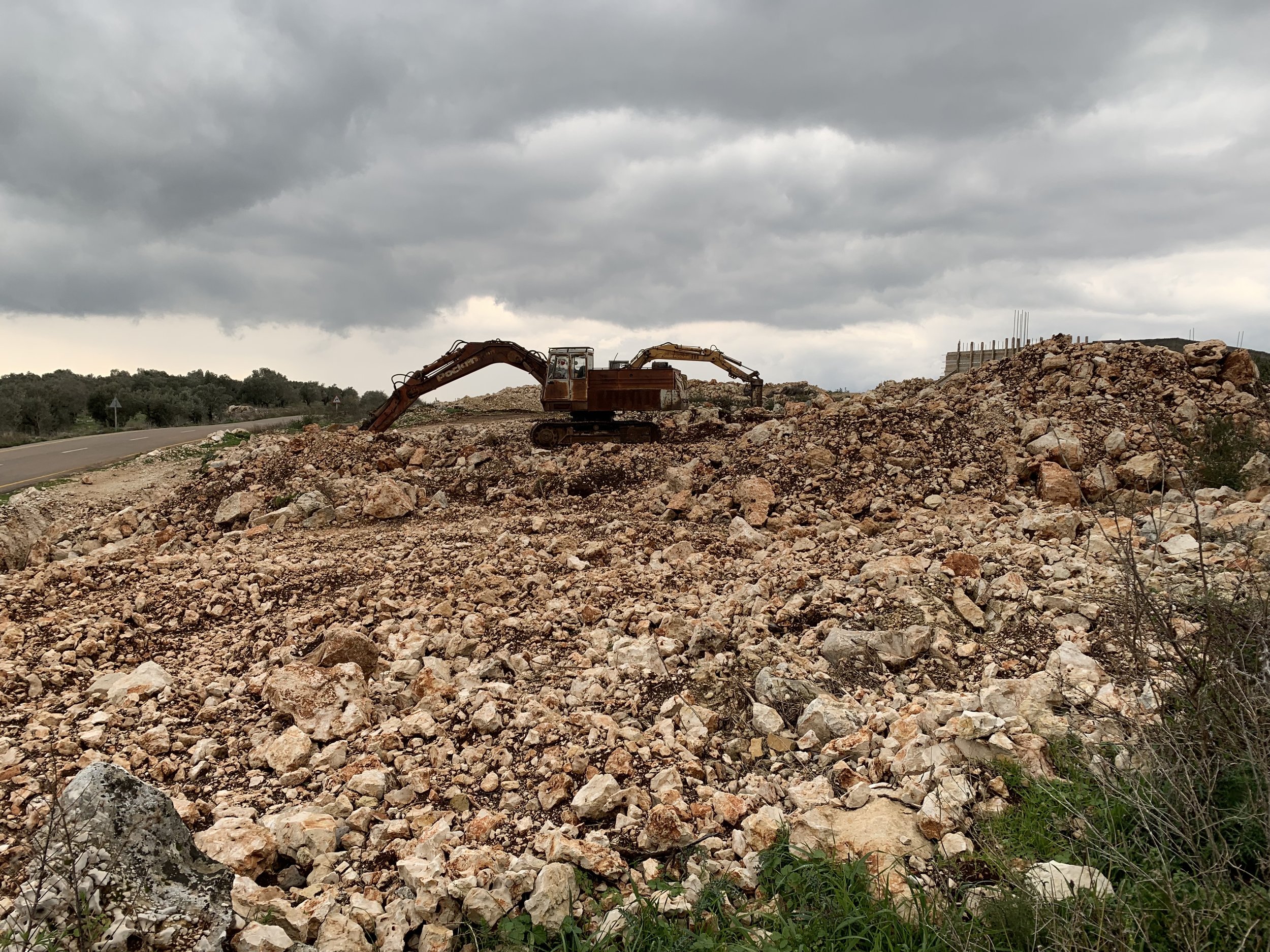A Place for Healing
by Jack Baca
(Written during a recent Outreach trip to Syria)
February 14. Valentine’s Day. Or, to be more accurate, Saint Valentine’s Day, named for the 4th century bishop who was persecuted and beheaded because he insisted on marrying young men and women against the orders of the Roman emperor, who wanted his soldiers not to have any romantic attachments so that they would more willingly die for the empire. The bishop believed in love – passionate, committed, sacrificial love – the kind that makes marriages work, the kind that makes the whole world work, the kind that looked down from the cross and said, “I forgive.”
The team rises early and says goodbye to Aleppo as we drive through apocalyptic scenes of bombed out buildings and posters with pictures of soldiers killed in action. We drive for several hours, past more evidence of warfare in the form of mangled and burned vehicles left to rust beside the road, and checkpoints everywhere, some with friendly soldiers, others with suspicion, exhaustion, and fear on their faces. It helps that some in our small caravan wear clerical collars. Also everywhere are flocks of sheep and their solitary shepherds. I wonder if they know this line, “The Lord is my shepherd.” Collar or not, all of us in the group follow and serve The Shepherd, and we are trying to take care of some of His sheep. This scriptural line has entered my mind more than once in the eleven days I’ve been away from the flock to which I mostly tend: “Yea, though I walk through the valley…” You know how it ends. We recite it often in worship back home, and it has come to mean so much more in my four trips to this region in the past 34 months.
Our first destination today is Amar al-Hosn, a small village in a valley full of them, a region known as “the Christian Valley” because only a small percentage of the people there are not Christian. Most of the rest are Alawite, the sect within Islam to which Syria’s president belongs and that has had an historically good relationship with the Christians here. Both steeples and minarets punctuate our views of clusters of concrete structures perched on the hillsides, a visible testimony to the fact that Christians and Muslims have lived in relative harmony for much of the past fourteen centuries of middle eastern history, a fact often conveniently forgotten by those who wish to promote hatred for their own selfish ends.
Before the conflict began here in 2011, the National Evangelical (Presbyterian) Synod of Syria and Lebanon acquired land with plans to construct a conference center. One exists already in the mountains of Lebanon, but travel between the two nations was often difficult, and now often impossible. Young men must post a huge bond before crossing the border in order to insure their return to Syria, a sum that most young people cannot begin to afford, especially given the inflation, joblessness, and general economic stagnation precipitated by the war. So the church was given a dream to have a place where the people of the many churches throughout the nation could gather for education, worship, fellowship, and spiritual rest. These things are necessary for all who follow Jesus, and certainly all the more so for those whose faith and faithfulness have been so severely tested.
The title “conference center” does not really explain what a place like this will mean to people who have lost loved ones, seen their homes destroyed, left behind their ancestral homelands, suffered a years-long shortage of electricity and food, and essentially had their entire lives upended in every way imaginable. The list of specific ways in which Syrian Christians – and all Syrians – has suffered is too long to mention here. Suffice it to say that whatever blessing you yourself can conjure to mind is one that a Syrian likely has gone without, at least for a while. And so the question arises: why do these folks need a conference center?
The answer is because they need spiritual healing, emotional rest, and recovery from what folks in the west have come to know as post-traumatic stress. A human being can withstand almost anything except a loss of heart, a destruction of hope, an absence even of the will to live. Here is where faith in Jesus Christ becomes the key to finding a way through the rubble of a ruined life. A small amount of faith, hope and love goes a long way toward helping a person cope with a destroyed livelihood, absent family members, and uncertain prospects for much of anything better. And that faith in Christ is nurtured, maybe even resurrected, when people gather for prayer, for teaching, for sharing of life at a depth that can occur only among those who have suffered similar circumstances.
But all of that is a rather clinical way of describing what the retreat center will enable. Perhaps a better way is for me to tell you about Hassan. When we arrived at the building site a group of people met us: the contractor and builder, some church officials, some workers, and the on-site caretaker who brewed up some fresh coffee and tea to warm our bones in the chilling wind and biting rain. It was a few minutes before I spotted Hassan. He was younger than most, taller than most, and hanging on the fringes of the clusters of people who busily reviewed the architectural plans and eagerly photographed the walls and footings and other things that you don’t see when a building is complete. Hassan was engaged, but quiet. I wondered why he was there. And I wondered even more when I caught a full view of him. There he was: young, tall, strong, and without his right leg, from the hip down.
Lunch at a beautiful restaurant overlooking the building site and the whole valley followed our visit. With a bit of conniving and good luck I managed to sit right next to Hassan. I wanted to visit. In San Diego, where I live and minister, there is great compassion for those who serve in the military and particularly those who suffer injury. Sure enough, after some hesitation, and a bit of a language barrier, I learned that Hassan had been a 1st Lieutenant in the Syrian Army, serving in Aleppo. In 2013, while trying to save some of his injured men, he was hit by the blast of a shell. He survived, but subsequent attempts to provide him with an artificial leg all failed due to the nature of his injury. Barring new technology, Hassan will never have a right leg of any kind. And now, six years after his injury, at the age of 33, he still has a lot of life to live. But that is not the way it seemed to him. For years, he told me, he was depressed and lost. He learned to use crutches with amazing skill, and from his days as an amateur boxer he had learned physical balance so well that he often didn’t use the crutches, preferring instead to hop around on his one remaining leg. His body healed as well as it could. But his soul was crushed.
About a year ago, Hassan was taken into a family from the small church in Amar al-Hosn. Hassan is Muslim. With their love and encouragement, and the offer of a job, Hassan began to heal, on the inside. This family gave him a chance to grieve, to heal, and to start his life again. Now, he laughs and talks, works and plays, and finds enough energy to visit with foreigners who are curious about his land and committed to helping it heal. If you can look at him and forget about the missing limb, all you will see is a young man full of vitality and purpose. His soul will always be scarred, of course, but it will now also be alive and well. He is living again.
Moving back to the rather dispassionate and clinical way of speaking, Hassan found healing for his post-traumatic stress through the loving embrace of a family. That is what this place called a retreat center will help happen. It will be place for the church family all across Syria to gather, to come before the Lord, and to heal.
I hope to return here many, many times. I want to see these buildings completed and full of people. I want to know that my congregation’s help in making this all happen has been worth it. Actually it already is. Now I know Hassan. And I will never forget him.
Rev. Jack Baca, The Village Community Church, Rancho Santa Fe, California




